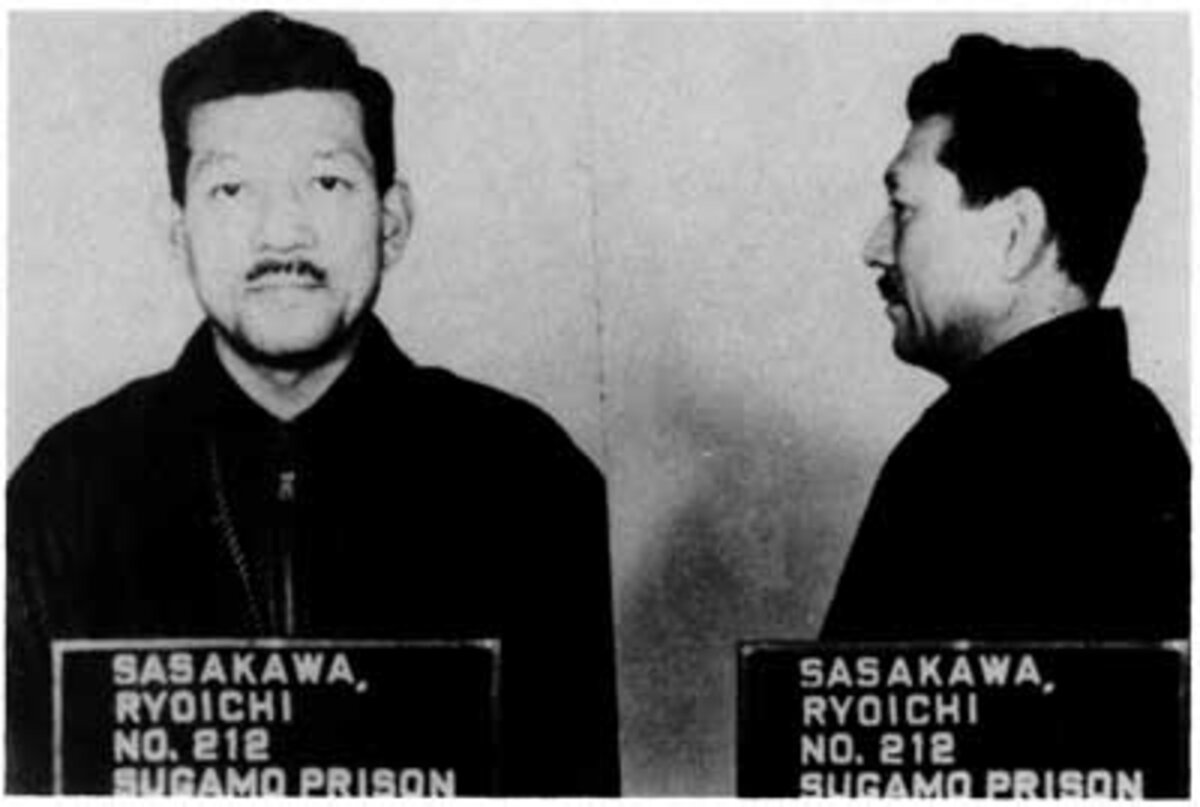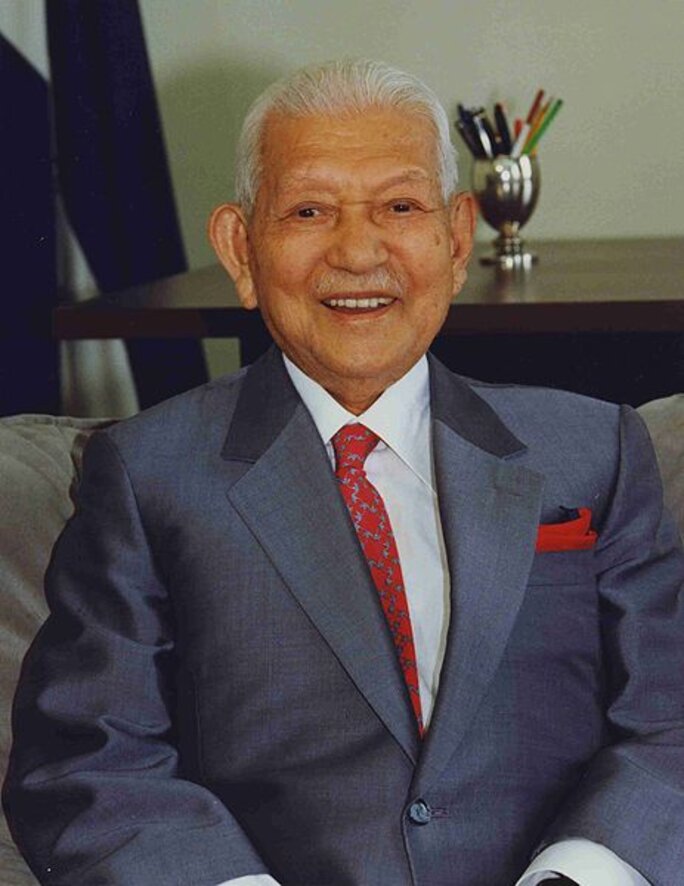Discreet and wealthy, the Franco-Japanese Fondation Sasakawa benefits from the support of some members of France's academic and cultural elite. A recent French court ruling, however, has brought to the fore the murky history of Ryoichi Sasakawa, after whom the foundation is named.
The Foundation found itself under an unwanted spotlight at the end of 2008 when a petition was sent to the French foreign ministry appealing that it withdraw from a colloquium co-sponsored by the Foundation. Signed by over 50 French academics, the petition (available, in French only, by clicking here) claimed that the Foundation bears the name of a Class A war criminal, Ryoichi Sasakawa. After World War II Class A criminals were tried in Nuremberg or Tokyo for their key role in the war. In addition, the petition said, Sasakawa was a historical figure of the Japanese far-right, close to the Japanese underworld.

In response, the Foundation filed a libel suit against one of the signatories, Karoline Postel-Vinay, a senior research fellow specialising in Japanese affairs at the Centre for International Studies and Research (CERI) which is affiliated to the Paris Political Studies Institute, better known as Science Po, an elite French institute of higher learning. None of the other signatories were pursued.
On September 22nd, 2010, a Paris court dismissed the suit and ordered the Foundation to pay all court fees as well as awarding 5,000 euros to Ms. Postel-Vinay. Yet, on the day of the ruling, the Foundation issued a press release expressing its "delight" because the court recognized that "the accusations made against the Foundation were libellous." The press release makes no mention of the court's dismissal of the suit. In an odd choice of words, the Foundation said it "deplored" the legal action it was "submitted" to, despite the fact that it was the Foundation itself that originally filed the suit.
For Ms Postel-Vinay's lawyer, Lorenzo Valentin, "they are leaning on the complexities of libel law". The ruling recognized that some of the language in the petition "undermines the honour or the consideration due" to the Foundation. Two of the paragraphs - out of five - of the petition were considered to be libellous by the judge. But the ruling also states that Ms Postel-Vinay acted in good faith and "legitimately made use of her freedom of expression". Thus the suit was dismissed because libel was not found under French law.
CLAI, a consulting firm specialising in corporate communication, handles public relations for the Foundation. Its president Eric Giuily defended the Foundation's press release. "When the court mentions libellous statements, it means these are unfounded, unproven. Ms Postel-Vinay is not cleared of all accusations," he said. But for Lorenzo Valentin, "the libellous nature of the statement that Ryoichi Sasakawa is a war criminal was not at issue in this suit. The question was: is it legitimate to say so? Were we right to do so? To that question, the court clearly responded, 'yes'." For some, Clai and the Foundation are playing with words and are deliberately muddying a very clear legal decision.
'He was arrested as a Class A war criminal'
Their communications barrage didn't stop with the press release, which became the opening salvo in a veritable media guerrilla war. Although lost in court, the battle was then taken into the media and communications arena. On the CERI side, the press release was distributed to all of its researchers. "Neither the Foundation, nor ourselves ever did that," said Eric Giuily, who is himself a researcher at Science Po upon which the CERI depends for a large part of its funding.

Enlargement : Illustration 2

Yet CERI director, Christian Lequesne, remembers seeing the press release at the time. As for his email inbox, it was flooded with messages from Clai and the Foundation following the court's decision. "That shows how important we are to them," he noted. After posting a message on the CERI website expressing satisfaction over the ruling, he received a right of response from the president of the Foundation. He in turn sent a letter in reply, which brought on an email response, and an incessant back and forth of cyber messages. "They are getting entangled in their right to reply," said Lorenzo Valentin.
French news agency Agence France Press (AFP) wrote a dispatch about the ruling in favour of Ms Postel-Vinay which, following a phone call on behalf of the Foundation, was then changed by adding an excerpt from the Foundation's press release. Eric Giuily is a former CEO of AFP. He admitted calling journalists to persuade them to modify their articles. "If we issue a press release it is so that it will be read and reported on," he said. "Our role is comparable to that of a lawyer in the judicial field, everybody has the right to express their own truth," he added. But he does now admit that "perhaps I wouldn't write the press release in the same way. If it created a misunderstanding, that wasn't the desired goal," he said.
Nonetheless, in a phone conversation with Mediapart, the media guerrilla war continued. "Ryoichi Sasakawa was never recognized as a Class A war criminal," he repeated several times. In Japan, however, that affirmation would be seen as revisionist. The current incarnation of the revisionist movement battles against what it calls a masochistic vision of history and refuses to recognize the war crimes perpetrated by the Empire of the Rising Sun. It also claims that there were no Japanese Class A war criminals. But a note by US General Douglas MacArthur, Supreme Commander of Allied Forces in Japan at the end of the war, states that Sasakawa "is clearly one of the worst offenders, outside the military, in developing in Japan a policy of totalitarianism and aggression." The note recommends that he be retained in custody as a Class A war criminal suspect and tried before an International Military Tribunal in Tokyo.
Sasakawa was arrested in 1945 and released in 1948. "He was not condemned because he was released without trial in the context of the Cold War," Ms Postel-Vinay said. "But he was arrested as a Class A war criminal."
Little-known to the general public, the Sasakawa Foundation in Japan - today rebranded the Nippon Foundation - is, however, familiar to part of the political and cultural elite. Very wealthy, it finances projects for the World Health Organization (WHO) as well as university research programmes. Between 2005 and 2008, the Tokyo Foundation, considered the Sasakawa Foundations think-tank, distributed a work called The Nanking Massacre: Fact versus Fiction to hundreds of researchers and libraries. The work claims that the 1937 Nanking massacre, in which nearly 200,000 people died at the hands of the Japanese, never occurred. In August 2010, Ryoichi Sasakawa's prison journal was published in the UK with a laudatory introduction. The English translation of the Japanese text was financed by the Nippon Foundation.
Although the Franco-Japanese Sasakawa Foundation is not directly implicated in this particular historical battle, it carries the name of a controversial figure. Yohei Sasakawa, Ryoichi's son, is a member of the French Foundations managing committee and is the current chair of the Nippon Foundation.
In France, the executive board includes a former French ambassador to Japan, Jean-Bernard Ouvrieu. For her part, French entertainer Line Renaud resigned from the board following the suit against Karoline Postel-Vinay. During the trial, the court heard testimony in support of the Foundation from several prestigious sources including witnesses from the Pasteur Institute, the Paris Châtelet Theatre and the director of the French Institute for International Relations, Thierry de Montbrial, who said that he was "honoured by his relations with this Foundation" and wished to maintain them in the future. In France, the discretion of the Sasakawa Foundation and its work as a patron of the arts has clouded its heritage and the questionable activities outside of France. Until now.
-------------------------
English version: Patricia Brett


